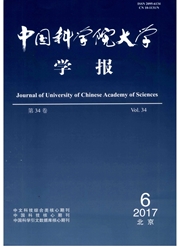

 中文摘要:
中文摘要:
油菜素内酯是一种植物生长调节剂,它对启动子序列中含有E-box(CANNTG)元件的基因具有明显的调控作用。青蒿素生物合成的关键基因ADS、DBR2和CYP71AV1启动子中均含有此序列元件。研究油菜素内酯处理对青蒿中青蒿素生物合成的影响。结果表明,80μmol/L的油菜素内酯是处理的最适浓度;80μmol/L油菜素内酯处理4 d后青蒿素含量比对照增加1倍多,在该处理条件下青蒿素生物合成的关键基因ADS,CYP71AV1和DBR2的表达均被上调。本研究的结果表明,油菜素内酯通过促进青蒿素生物合成关键基因的表达而增加青蒿素的合成。这一研究结果对生产上提高青蒿素含量具有一定参考价值。
 英文摘要:
英文摘要:
As a plant growth regulator,brassinosteroid is able to activate the expression of the genes in their promoter sequences containing E-box( CANNTG) cis-element. Since the key enzyme genes of artemisinin biosynthesis pathway, including ADS( amorpha-4,11-diene synthase), DBR2( artemisinic aldehyde Δ11( 13) reductase),and CYP71AV1( cytochrome P450 monooxygenase),all contain this element,the effect of brassinosteroid on artemisinin biosynthesis is investigated. Our results show that 80 μmol / L of brassinosteroid is the optimal concentration for foliar application of Artemisia annua L.; the artemisinin content increases by more than 100% compared to that of the control after 80 μmol / L brassinosteroid treatment for 4 days; and the expressions of artemisinin biosynthesis-related genes ADS,CYP71AV1,and DBR2 are all up-regulated after treatment. The above results indicate that brassinosteroid promotes the biosynthesis of artemisinin by up-regulating the expression of the key genes involved in artemisinin biosynthesis,which could be used as a possible way to increase artemisinin production of medicinal plant A. annua.
 同期刊论文项目
同期刊论文项目
 同项目期刊论文
同项目期刊论文
 期刊信息
期刊信息
